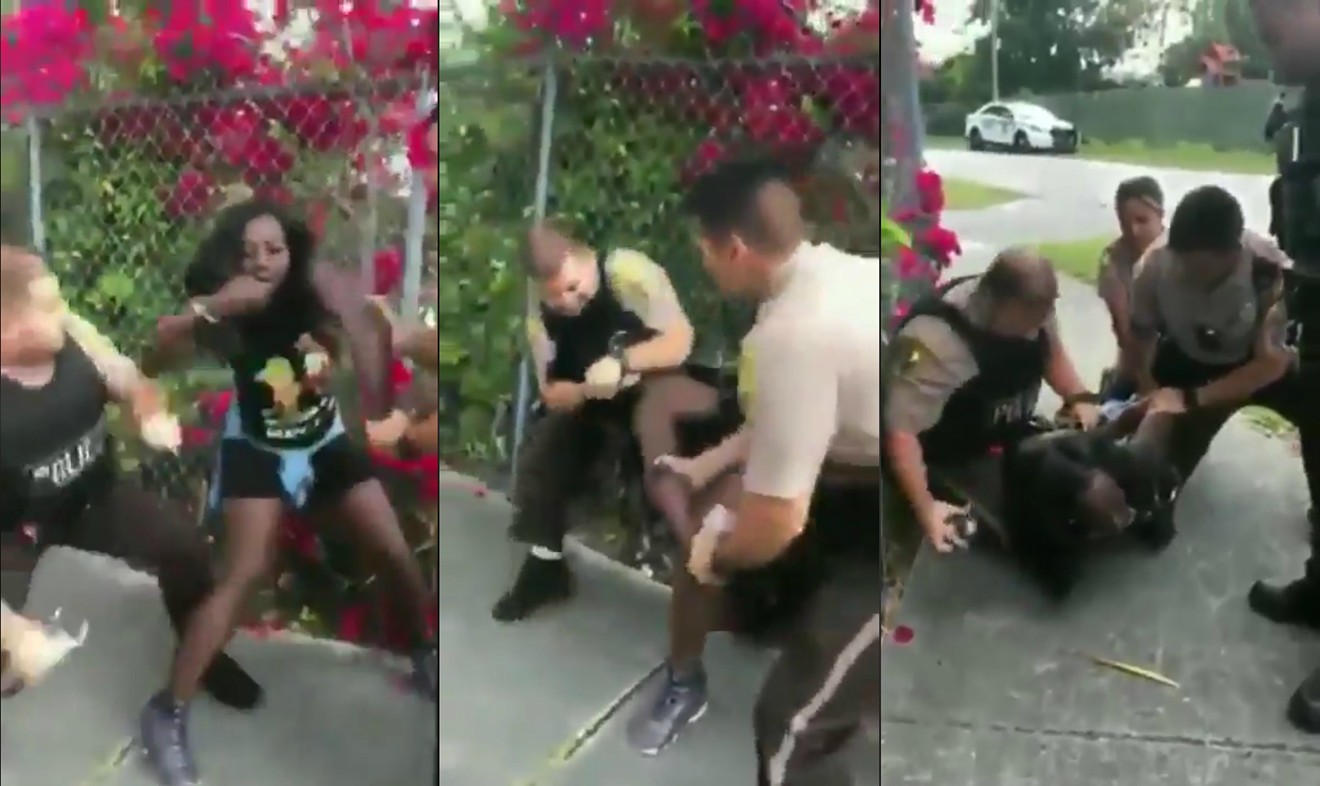Six years ago this month, Miami-Dade County commissioners voted to outfit police with body-worn cameras, over the vocal objections of the county's police union.
Following an initial pilot program in 2015, the Miami-Dade Police Department (MDPD) has distributed the cameras to all of its uniformed patrol officers and sergeants. The MDPD, which is the eighth-largest police agency in the U.S., has roughly 3,100 officers on its roster.
Against the backdrop of a national conversation on policing and the use of force by law-enforcement officers, a team of researchers at a handful of Ivy League and other prestigious universities is now working with the MDPD to obtain up to three years' worth of recordings from those body-worn cameras. By reviewing the footage, along with arrest reports, crime data, and officers' personnel records, the researchers intend to study patterns in and predictors of use of force.
Last week, Miami-Dade's Community Safety and Security Committee voted to approve the study, which has the support of the higher-ups at the MDPD. The full board of commissioners will vote on the study at its next meeting on July 8.
"From the data, we learn, and from the data, hopefully we improve and get better...and I'm delighted that Miami-Dade County is prepared to do it," Commissioner Sally Heyman said at last week's committee meeting.
If approved, the study is expected to take at least three years to complete. Researchers from Brown, Princeton, Stanford, the University of Michigan, and the University of Pennsylvania will work together on the project.
When reviewing the footage of use-of-force incidents, the researchers say, they'll note how clearly the officer communicated with the subject, whether the subject complied with the officer, whether the officer escalated or de-escalated the situation, and whether the officer reacted proportionately given the circumstances. The race of the subject will also be a data point.
A June 10 memo about the study was signed by several top officials with the MDPD and states that the department hopes to use the data to improve police operations and community relations.
At the committee meeting, Miami-Dade police Maj. Carlos Gonzalez addressed a resident's concern that the data would be "cherry picked," explaining that the researchers would have unrestricted access to two to three years of video footage from officers' body-worn cameras.
"We have no choice in it," Gonzalez said. "They'll be provided all of it, and they get to do a random selection of which use-of-force incidents that were captured in body-worn cameras — whatever they want."
While many use-of-force incidents by City of Miami police officers have come under scrutiny in recent years by the city's independent watchdog, the Civilian Investigative Panel, Miami-Dade County hasn't had its own police oversight board since 2009, when county commissioners slashed its funding.
Last summer, amid nationwide protests against the killing of George Floyd in Minneapolis, the county commission voted to revive the panel, but owing to a bureaucratic nominating process, it has yet to meet.
[
{
"name": "Air - MediumRectangle - Inline Content - Mobile Display Size",
"component": "19274298",
"insertPoint": "2",
"requiredCountToDisplay": "2"
},{
"name": "Editor Picks",
"component": "17482312",
"insertPoint": "4",
"requiredCountToDisplay": "1"
},{
"name": "Inline Links",
"component": "18711090",
"insertPoint": "8th",
"startingPoint": 8,
"requiredCountToDisplay": "7",
"maxInsertions": 25
},{
"name": "Air - MediumRectangle - Combo - Inline Content",
"component": "17482310",
"insertPoint": "8th",
"startingPoint": 8,
"requiredCountToDisplay": "7",
"maxInsertions": 25
},{
"name": "Inline Links",
"component": "18711090",
"insertPoint": "8th",
"startingPoint": 12,
"requiredCountToDisplay": "11",
"maxInsertions": 25
},{
"name": "Air - Leaderboard Tower - Combo - Inline Content",
"component": "17482313",
"insertPoint": "8th",
"startingPoint": 12,
"requiredCountToDisplay": "11",
"maxInsertions": 25
}
]












